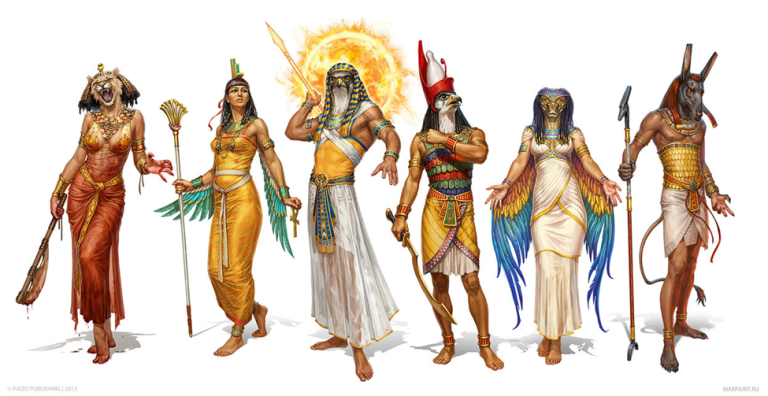
As an historian, if I had to choose between the gods and goddess of ancient Greece or Egypt—I’d choose Egypt hands down. Or, as I should say in referring to the gods or the royal family, it was hands out—palms up!
Egyptian deities were so much more colorful and dynamic.
Egyptians lived with forces that they did not understand. Storms, earthquakes, floods, and dry periods all seemed inexplicable, yet the people realized acutely that natural forces had an impact on human affairs. The spirits of nature were thus deemed powerful in view of the damage they could inflict on humans.
The early belief in the gods took the forms of animism, the belief that inanimate objects, plants, animals, the earth, have souls and are imbued with the divine spark; Of fetishism, the belief that an object had consciousness and supernatural powers; And totemism, the belief that individuals or clans have a spiritual relationship with a certain plant, animal, or symbol.
In the Predynastic Period, (before the Pharaohs) animism was the primary understanding of the universe, as it was with early people in any culture.
The ugly god at the far right, is Set. He is a combination of many animals and is the god of darkness, underworld, everything bad. Set has also been classed as a trickster deity who, as a god of disorder, resorts to deception to achieve bad ends. No wonder he is the villain in all of my Egyptian novels.